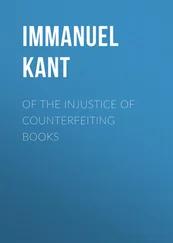Furthermore, as the argument from intellectual reasonings easily shows that substantial composites being given, whether by the testimony of the senses or otherwise, the simple parts and the world are also given, so does our definition point out causes contained in the nature of the subject why the notion of a world should not seem merely arbitrary and made up, as in mathematics, only for the sake of the deducible consequences. The mind intent upon resolving as well as compounding the concept of a composite demands and presumes boundaries in which it may acquiesce in the former as well as in the latter direction.
In defining the World the following points require attention:
I. Matter (in the transcendental sense), that is, the parts which are here assumed to be substances . We might plainly be regardless of coincidence between our definition and the meaning of the common word, the question being, so to speak, of a problem arising in accordance with the laws of reasoning, namely, how several substances may coalesce into one, and on what condition rests this one’s being no part of another. But the force of the word World, as commonly used, of itself falls in with us. For no one will attribute accidents to the World as parts , but as determinations, states; hence the so-called world of the ego , unrestrained by the single substance and its accidents, is not very appositely called a World, unless, perhaps, an imaginary one. For the same reason it is not permissible to refer the successive series—namely, of states—as a part to the mundane whole; for modifications are not parts , but consequences of the subject. Finally, as to the nature of the substances constituting the world, I have not here called into debate whether they be contingent or necessary, nor do I hide such a determination unproved in the definition in order subsequently, as is sometimes done, to draw it thence by some specious argumentation. But I shall show further on that their contingency can be amply concluded from the conditions here posited.
II. Form , which consists in the co-ordination of the substances, not in their subordination. For co-ordinates are to be regarded as mutual complements to a whole, subordinates as effect and cause, or generally, as principle and consequence. The former relation is reciprocal and homonymous , any correlate in respect to any other being considered as at once determining and determined. The latter is heteronymous; on the one hand dependence only, causality on the other. This co-ordination is conceived as real and objective, not as ideal, and resting in the mere pleasure of a subject making up a whole by the summation of any multiplicity whatever. For the grasping of several things can by no contrivance be made a whole of representation , nor, for that reason, a representation of the whole . Therefore, if there be any totals of substances connected by no bond, a grasping of them together, the mind forcing the multiplicity into ideal oneness, will be called nothing more than a plurality of worlds comprehended in a single thought. But the connection constituting the essential form of a world is looked upon as the principle of the possible influences of the substances composing that world. For an actual influence pertains not to essence but to state, and the transitive forces, the causes of the influences, suppose some principle by which it is possible that the states of several things in other respects existing independently of each other are mutually related as consequences, which principle being abandoned, the possibility of transitive force in a world is an illicit assumption. And, furthermore, this form essential to the world is on that account immutable , and exposed to no vicissitude whatever. It is so in the first place for a logical reason, since any change supposes the identity of the subject with determinations succeeding one another in turn. Hence the world, remaining the same world through all the states succeeding one another, preserves the same fundamental form. For it does not suffice to the identity of the whole that all the parts be identical, the identity of characteristic composition is required also. But it follows especially from a real cause . For the nature of the world, which is the primary inner principle of whatever variable determinations may pertain to its state, never by any possibility being opposite to itself, is naturally, that is, by itself, immutable; hence there is given in any world whatever some form ascribable to its nature, constant and invariable, as the perennial principle of any contingent and transitory form pertaining to the state of the world. They who hold this disquisition superfluous are confuted by the concepts of space and time, conditions, as it were, given by their very own selves and primitive, by whose aid, that is to say, without any other principle, it is not only possible but necessary for several actual things to be regarded as reciprocally parts constituting a whole. But I shall show presently that these are plainly not rational notions, nor the bonds which they form objective ideas , but phenomena; and that though they witness, to be sure, some principle which is the common universal bond, it is not set forth by them.
III. Universality , which is the absolute allness of the appertaining parts. For, regard being had to any given composite, though it may be besides a part of another, still there always obtains a certain comparative allness, namely, that of the parts belonging to it as a particular quantity. But in this case whatsoever things are regarded as mutually parts of whatsoever whole, are understood to be conjointly posited. This absolute totality , apparently an everyday and perfectly obvious concept, especially when, as happens in the definition, it is enunciated negatively, when canvassed thoroughly becomes the crucial test of the philosopher. For it is scarce conceivable how the inexhaustible series of the states of the universe succeeding one another eternally be reducible to a whole comprehending all changes whatsoever. Since it is necessary to very infinitude to be without end , and hence no successive series is given but what is the part of another, completeness or absolute totality is by parity of reasoning plainly excluded. For although the notion of a part can be taken in a universal sense, and although everything contained under this notion, if regarded as posited in the same series, constitutes unity, yet the concept of the whole appears to exact their all being taken simultaneously , which in the case given is impossible. For, although to the whole series nothing succeeds, there is given in the succession no posited series to which nothing succeeds, unless it be the last. There will, then, in eternity be something which is last, which is absurd. Perhaps some may think that the difficulty which besets a successive infinite is absent from a simultaneous infinite , for the reason that apparently simultaneity plainly professes to embrace all at the same time . But, if the simultaneous infinite be admitted, the successive infinite also will have to be conceded, and the negation of the latter cancels the former. For the simultaneous infinite offers matters everlastingly inexhaustible to a successive progress in infinitum through its innumerable parts, which numberless series actually being given in the simultaneous infinite, a series though inexhaustible by successive addition could be given as a whole . In solution of the perplexing problem note; that both the successive and the simultaneous co-ordination of several things, since they rest upon the concept of time, do not pertain to the intellectual concept of a whole, but only to the conditions of sensuous intuition; hence though not sensuously conceivable, they do not on that score cease being intellectual concepts. For in order to the latter it suffices that co-ordinates be given, no matter how, and that they be thought of as all pertaining to a unit.
Читать дальше












